‘ICEC report on LGBTQ+ experiences in cricket is shocking – but Out4Cricket ready for action’
73% of LGBTQ+ respondents to an Independent Commission for Equity in Cricket survey say they have experienced discrimination in the last five years; this area of the ICEC report has been largely overlooked so far; here, Lachlan Smith of Out4Cricket discusses the findings and explains how his new organisation is well placed to help provide solutions…
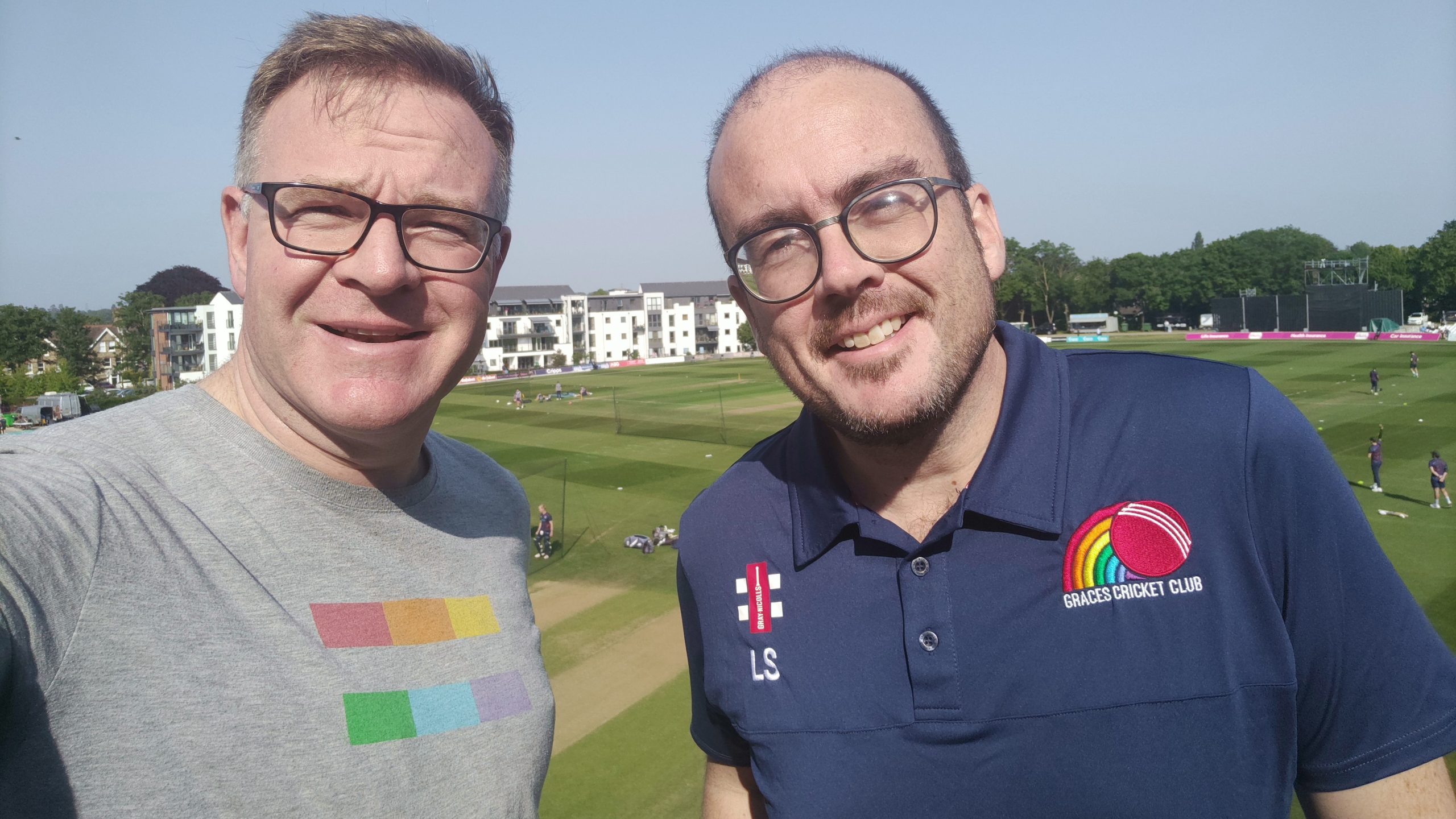
On June 27, the Independent Commission for Equity in Cricket released a report titled ‘Holding Up a Mirror to Cricket’ which contained evidence of deep-rooted discrimination in the sport.
Writing for Sports Media LGBT+, Lachlan Smith – the co-founder of Out4Cricket – addresses the report’s findings relating to anti-LGBTQ+ discrimination…
‘The Spirit of Cricket’ is a widely used phrase within the sport, being used to promote and justify much in the game over many years.
Despite being undefinable and having a different meaning to everyone, this spirit has underpinned so much of the culture, perceived gentle traditions, and curiosities within the sport.
But as the report from the Independent Commission for Equity in Cricket (ICEC) has laid bare this month, the spirit of cricket may not hold much muster for those who have been discriminated against, isolated or excluded from the sport.
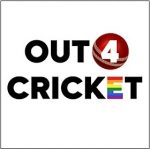
At Out4Cricket, we have worked over the last two years to educate, advocate and collaborate with stakeholders and partners across the sport to improve LGBTQ+ visibility and inclusion.
Like many in the community, we awaited the ICEC report with a growing sense of urgency. We understood that LGBTQ+ issues were not within the terms of reference (gender, race, and class were central to the report), but we knew the issues affecting the game are intersectional, and the experiences of the LGBTQ+ community would be reflected, at least in part, in the experiences of others.
We are grateful that the Commission chose to report the experiences of the LGBTQ+ people who responded to the opportunity to share their views, even if published in an already largely overlooked additional report, titled ‘It’s Not Banter’.
Given the ICEC’s remit, we expect that the responses received underestimate the level of LGBTQ+ discrimination in the game. Some people will not have responded because they felt the ICEC wasn’t set up to acknowledge and address LGBTQ+ issues.
We were not surprised by what we learned. The Key Findings noted that “among LGBTQ+ people, the main lived experiences of discrimination relate to a culture where homophobic slurs, name-calling, verbal abuse, and harassment make it hard to come out and be themselves.”
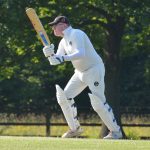
In addition, 73% of LGBTQ+ people who responded to the Commission had experienced discrimination in the last five years. This shocking statistic only scratches the surface of people’s experiences.
The sense of exclusion felt by those in the community, whether open about their sexuality or gender identity or not, was significant, with people even being cast out for challenging discriminatory behaviour.
We know that some gay and bi men won’t come out for fear of discrimination from teammates, the opposition, or the wider game, with harmful stereotypes of perceived predatory behaviour often underlining their choice not to come out.
The challenges facing the trans community are significant too.
While the women’s game has been more open for some time, issues remain as highlighted in the report.
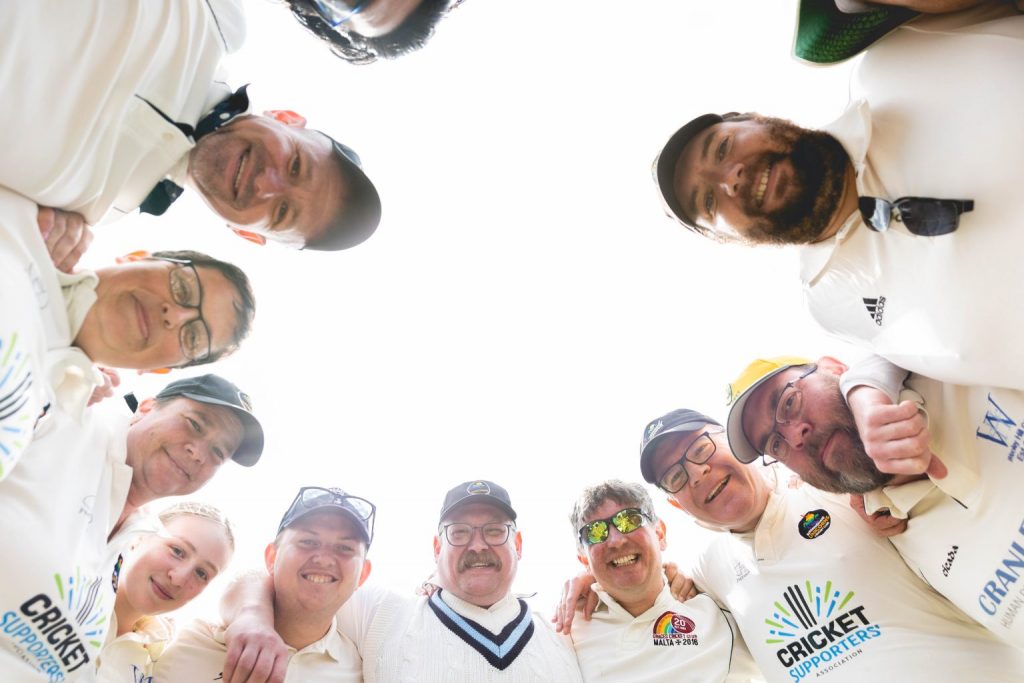
The ICEC report presents an opportunity to make cricket more inclusive. We must build on what we have been doing and ensure that LGBTQ+ inclusion is a central part of the ECB response to the ICEC report.
Since the beginning of the year, Out4Cricket has:
- Established the second LGBTQ+ Inclusion in Cricket Conference, which takes place at Lord’s on Tuesday 5 September 2023. Last year, we had 60 people join us, with over 80 already registered for this year. We will welcome the ECB, MCC, PCA, Counties, and other interested parties to help us make meaningful changes across cricket
- Supported around 100 recreational clubs across England and Wales to become more inclusive for the LGBTQ+ community and beyond
- Worked with Kent and Gloucestershire County Cricket Clubs to make T20 Pride matches happen this year, while Gloucestershire has launched its new LGBTQ+ supporter network
- In conjunction with Warwickshire County Cricket Club, held the first LGBTQ+ cricket tournament at Sutton Coldfield Cricket Club in June as part of Pride Month. It was a brilliant celebration of cricket and was a key step in changing perceptions of cricket within the community
- Set up a taster session for the community at Lord’s in July, and it has already been sold out, with sixty free places snapped up. We are now exploring options to run more sessions
This is only the beginning. It is the first time in cricket’s history that the LGBTQ+ community has been publicly acknowledged in a coordinated way.
It is the first-time cricket, at any level, has offered any space for the community to thrive.
We are committed to continuing this work and ask the ECB and cricket’s stakeholders to be part of the journey – to clearly and unambiguously include our community in the developed action plan.
It is time to develop a truly holistic plan for the future, leaving no one or no community behind – if the ambition is to make cricket ‘the most inclusive sport’.
We have three months.
Find out more about the work of Out4Cricket on their website, and follow on Twitter. Tickets for the LGBTQ+ Inclusion in Cricket Conference at Lord’s on Tuesday 5 September (10.30pm to 4pm) are available here.
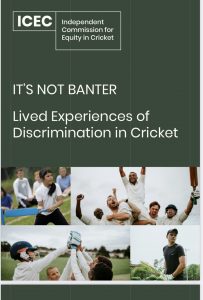
What does the ICEC report say about anti-LGBTQ+ discrimination in English and Welsh cricket?
Sports Media LGBT+ provides more takeaways from the main report and the ‘It’s Not Banter’ annex…
- One of the top lines of the executive summary of the report states that homophobic comments and actions have been among the exclusionary behaviours that often go “without serious challenge” in cricket. The summary explicitly mentions how “a ‘laddish’ drinking culture” has impacted negatively on women
- An example of a relevant response from an individual in recreational cricket is highlighted in the main body of the report itself. The individual claims homophobic and transphobic views are “routinely expressed” by the men they have encountered playing in teams at this recreational level, adding: “Anyone who objects to them is outcasted”
- 160 of the total 4,156 people who responded to the online survey (3.88%) said they were LGBTQ+. For comparison purposes, 18% of respondents to the survey were women; 11.8% were South Asian; 8.2% said they had a disability; 1.6% were Black
- 38% of all respondents to the online survey said that they felt incidents were not sufficiently serious enough to warrant formal reporting. Examples of these perceived microaggressions included the calling of certain behaviours “so gay” and referring to poor shots played by male cricketers as “playing like a girl”. When such homophobic and sexist remarks were raised and not addressed seriously, respondents were understandably less likely to raise more significant issues of discrimination
- Chapter 6 of the ‘It’s Not Banter’ annex looks specifically at examples of anti-LGBTQ+ discrimination provided by respondents, alongside the experiences of disabled people and also Jewish people. There is also a section on perceptions of EDI in cricket and other team sports among LGBTQ+ and disabled people, with conclusions
- The majority of examples of homophobia provided, taken from qualitative data, come from LGBTQ+ people involved as players, coaches or match officials in recreational cricket. Some were responses made by board and committee members, staff members, and parents
- In the section titled ‘Assumptions and stereotypes about LGBTQ+ people’, it was noted that more than one respondent had mentioned the impact of a homophobic trope that “some gay people (especially men) are sexual predators and/or paedophiles, who are involved in cricket to gain ready access to young people”
- The annex refers to “considerable evidence” suggesting the use of homophobic slurs is dismissed as ‘banter’ or deemed to be ‘not serious’. A woman who volunteers in cricket and who is a lesbian said she was “criticised at every opportunity for being gay”, adding that the head groundsman at a county cricket club was responsible. She said the discrimination was reported but that nothing was done
- The annex mentions that trans people felt an “acute” sense of exclusion. Evidence was received pertaining to the recent guidance from Sports Councils which had made it “especially ‘challenging’ for transgender people” to find a team they could join
- Ultimately, 3 in 10 LGBTQ+ respondents to the survey felt that “not everyone has the same opportunities to enjoy the game, progress and be rewarded fairly, regardless of their sexual orientation”
Sports Media LGBT+ is a network, advocacy, and consultancy group that is helping to build a community of LGBTQ+ people and allies in sport. We’re also a digital publisher and can help with your content requirements. Learn more about us here.
We’re interested in your news and stories. Share with us and tap into a worldwide audience through our Google News affiliate website which attracts thousands of visitors, and our popular social channels. Contact us to discuss how we can help you.


